第63章 Personality Letters (3)
"There are no personae non gratae at the White House.I long ago learned the waste of time in maintaining such a class."There was in circulation during Henry Ward Beecher's lifetime a story, which is still revived every now and then, that on a hot Sunday morning in early summer, he began his sermon in Plymouth Church by declaring that "It is too damned hot to preach." Bok wrote to the great preacher, asked him the truth of this report, and received this definite denial:
"My Dear Friend:
"No, I never did begin a sermon with the remark that "it is d--d hot,"etc.It is a story a hundred years old, revamped every few years to suit some new man.When I am dead and gone, it will be told to the rising generation respecting some other man, and then, as now, there will be fools who will swear that they heard it!
"Henry Ward Beecher."
When Bok's father passed away, he left, among his effects, a large number of Confederate bonds.Bok wrote to Jefferson Davis, asking if they had any value, and received this characteristic answer:
"I regret my inability to give an opinion.The theory of the Confederate Government, like that of the United States, was to separate the sword from the purse.Therefore, the Confederate States Treasury was under the control not of the Chief Executive, but of the Congress and the Secretary of the Treasury.This may explain my want of special information in regard to the Confederate States Bonds.Generally, I may state that the Confederate Government cannot have preserved a fund for the redemption of its Bonds other than the cotton subscribed by our citizens for that purpose.At the termination of the War, the United States Government, claiming to be the successor of the Confederate Government, seized all its property which could be found, both at home and abroad.I have not heard of any purpose to apply these assets to the payment of the liabilities of the Confederacy, and, therefore, have been at a loss to account for the demand which has lately been made for the Confederate Bonds.
"Jefferson Davis."
Always the soul of courtesy itself, and most obliging in granting the numerous requests which came to him for his autograph, William Dean Howells finally turned; and Bok always considered himself fortunate that the novelist announced his decision to him in the following characteristic letter:
"The requests for my autograph have of late become so burdensome that Iam obliged either to refuse all or to make some sort of limitation.
Every author must have an uneasy fear that his signature is 'collected'
at times like postage-stamps, and at times 'traded' among the collectors for other signatures.That would not matter so much if the applicants were always able to spell his name, or were apparently acquainted with his work or interested in it.
"I propose, therefore, to give my name hereafter only to such askers as can furnish me proof by intelligent comment upon it that they have read some book of mine.If they can inclose a bookseller's certificate that they have bought the book, their case will be very much strengthened;but I do not insist upon this.In all instances a card and a stamped and directed envelope must be inclosed.I will never 'add a sentiment'
except in the case of applicants who can give me proof that they have read all my books, now some thirty or forty in number.
"W.D.Howells."
It need hardly be added that Mr.Howells's good nature prevented his adherence to his rule!
Rudyard Kipling is another whose letters fairly vibrate with personality; few men can write more interestingly, or, incidentally, considering his microscopic handwriting, say more on a letter page.
Bok was telling Kipling one day about the scrapple so dear to the heart of the Philadelphian as a breakfast dish.The author had never heard of it or tasted it, and wished for a sample.So, upon his return home, Bok had a Philadelphia market-man send some of the Philadelphia-made article, packed in ice, to Kipling in his English home.There were several pounds of it and Kipling wrote:
"By the way, that scrapple--which by token is a dish for the Gods--arrived in perfect condition, and I ate it all, or as much as Icould get hold of.I am extremely grateful for it.It's all nonsense about pig being unwholesome.There isn't a Mary-ache in a barrel of scrapple."Then later came this afterthought:
"A noble dish is that scrapple, but don't eat three slices and go to work straight on top of 'em.That's the way to dyspepsia!
"P.S.I wish to goodness you'd give another look at England before long.It's quite a country; really it is.Old, too, I believe."It was Kipling who suggested that Bok should name his Merion home "Swastika." Bok asked what the author knew about the mystic sign:
"There is a huge book (I've forgotten the name, but the Smithsonian will know)," he wrote back, "about the Swastika (pronounced Swas-ti-ka to rhyme with 'car's ticker'), in literature, art, religion, dogma, etc.Ibelieve there are two sorts of Swastikas, one [figure] and one [figure];one is bad, the other is good, but which is which I know not for sure.
The Hindu trader opens his yearly account-books with a Swastika as 'an auspicious beginning,' and all the races of the earth have used it.It's an inexhaustible subject, and some man in the Smithsonian ought to be full of it.Anyhow, the sign on the door or the hearth should protect you against fire and water and thieves.
"By this time should have reached you a Swastika door-knocker, which Ihope may fit in with the new house and the new name.It was made by a village-smith; and you will see that it has my initials, to which I hope you will add yours, that the story may be complete.